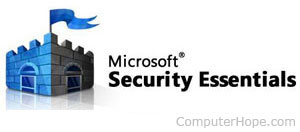Computer history - 2009
Major computer events in 2009

A person under the fake name of Satoshi Nakamoto introduced the Internet currency bitcoin on January 3, 2009.
2009 computer and technology top terms
The following are some top computer and technology-related terms in alphabetical order that were introduced or popularized in 2009.
New computer products and services introduced in 2009
AMD released the first Phenom II X4 (quad-core) processors (6 M cache, 2.5 to 3.7 GHz, 1066 MHz or 1333 MHz FSB) on January 8, 2009.
Intel released the Core 2 Duo processor E7500 (3 M cache, 2.93 GHz, 1066 MHz FSB) on January 18, 2009.
AMD released the Socket AM3 architecture in February 2009.
Google released Google Latitude for iOS and Android on February 5, 2009.
AMD released the first Phenom II X3 (triple-core) processors (6 MB cache, 2.5 to 3.0 GHz, 1066 MHz or 1333 MHz FSB) on February 9, 2009.
Google Voice, based on GrandCentral, was launched on March 11, 2009.
Microsoft Internet Explorer 8 was introduced on March 19, 2009.
Blizzard released its revamped Battle.net client on March 20, 2009.
Intel released the Core 2 Quad processor Q8400 (4 MB cache, 2.67 GHz, 1333 MHz FSB) in April 2009.
Android version 1.5 (Cupcake) was released on April 27, 2009.

The Minecraft game was released on May 17, 2009, and was first made available as early access.
VMware vSphere was officially released on May 21, 2009.
Intel released the Core 2 Duo processor E7600 (3 MB cache, 3.06 GHz, 1066 MHz FSB) on May 31, 2009.
AMD released the first Athlon II X2 (dual-core) processors (1024 KB L2 cache, 1.6 to 3.5 GHz, 1066 MHz or 1333 MHz FSB) in June 2009.
AMD released the first Phenom II X2 (dual-core) processors (6 MB cache, 3.0 to 3.5 GHz, 1066 MHz or 1333 MHz FSB) on June 1, 2009.
Microsoft launched the Bing search engine on June 3, 2009.
Apple introduced macOS X 10.6, code-named Snow Leopard, at the WWDC (Worldwide Developer Conference) on June 8, 2009. The operating system was made available to everyone on August 28, 2009.
Apple released the iPhone 3Gs (s for successor) on June 19, 2009.
XPS (XML Paper Specification) was introduced on June 16, 2009, by Microsoft.
Zynga launched its most successful game, Farmville, on June 19, 2009.
The Chinese microblogging and social media platform Weibo was released on August 14, 2009.
AMD released the first Athlon II X4 (quad-core) processors (512 KB L2 cache, 2.2 to 3.1 GHz, 1066 MHz or 1333 MHz FSB) in September 2009.
Intel released the first Core i5 desktop processor with two cores, the i5-750 (8 MB cache, 2.67 GHz, 1333 MHz FSB), on September 8, 2009.
Android version 1.6 (Donut) was released on September 15, 2009.
Microsoft released Virtual PC on September 19, 2009.

Microsoft released MSE (Microsoft Security Essentials) on September 30, 2009.
AMD released the first Athlon II X3 (triple core) processors (512 KB L2 cache, 2.2 to 3.4 GHz, 1066 MHz or 1333 MHz FSB) in October 2009.
Microsoft released Windows 7 on October 22, 2009.
Android version 2.0 (Eclair) was released on October 29, 2009.
The first version of MariaDB was released on October 29, 2009.
Borderlands was released for the PC (personal computer) on October 26, 2009, and for the Mac on December 3, 2010. A role-playing FPS (Frames Per Second) game, Borderlands was a near instant hit, selling over two million copies by December 2009, and as of August 2011, over 4.5 million copies were sold. IGN included the game in its Top 100 Modern Video Games list in late 2011.
The site Chatroulette was launched in November 2009.
Google announced the Google ChromeOS (operating system) on July 7, 2009. Google later made it an open-source project named Chromium on November 19, 2009.
The first Barnes & Noble Nook was released on November 30, 2009.
TeliaSonera made the first LTE (Long-Term Evolution) service available in Oslo, Norway, and Stockholm, Sweden, in December 2009.
AdBlock was introduced for the Google Chrome Internet browser.
Bandicam was released in 2009.
ExpressVPN was introduced in 2009.
Google Goggles was released in 2009. Google Lens would later replace the app.
Hewlett-Packard introduced the Probook.
Google introduced its Go programming language to the public.
The first Hacker Dojo was held in 2009.
Imgur was founded by Alan Schaaf in 2009 while he was a computer science student at Ohio University.
Iomega introduced the Iomega REV drive in 2009.
Node.js was released in 2009.
Nook was released in 2009.
Omegle came online in 2009.
A commercial version of Plex was forked, and Plex, Inc. was formed.
A Tasmanian devil, Tuz, wearing a fake penguin beak, was named the brand character for Linux kernel 2.6.29. The character was created to help promote the support effort to save the Tasmanian devil from extinction.
Redis was released in 2009.
The first DevOpsDays was held in Ghent, Belgium in 2009.
X was forked to Xorg in 2009.
BlazBlue: Continuum Shift was released for the Xbox 360 and PlayStation 3 in 2009.
Ubisoft released Ubisoft Connect in 2009.
Dell released the Studio XPS 9000, XPS 430, XPS 625, Studio XPS 13, and Studio XPS 16 in 2009.
Computer and technology-related events in 2009
Maksym Yastremski was sentenced to 30 years in a Turkish prison on January 8, 2009, for his involvement in computer hacking and selling stolen credit and debit cards.
The Moonshot Factory began developing the Waymo project on January 17, 2009.
On March 11, 2009, Foursquare launched its mobile application at SXSW (South by Southwest) Interactive, garnering acclaim and massive buzz.
The Kickstarter service and website started on April 28, 2009.
The analog TV signal began to be phased out as broadcasts moved to high-definition on June 12, 2009.
Michael Jackson passed away on June 25, 2009. The news of his death caused many of the biggest sites on the Internet to crash. Also, Google believed it was under a DDoS attack, blocking all searches relating to Michael Jackson for 30 minutes.

After more than five years in beta, Gmail was formally released on July 7, 2009.
On July 29, 2009, Yahoo! and Microsoft announced a 10-year partnership where Bing would replace the Yahoo! search.
Apple removed support for AppleTalk on August 28, 2009, by introducing macOS X v10.6 ("Snow Leopard"). This version was also the first macOS not to support PowerPC processors.
The SATA-IO (Serial ATA International Organization) announced Mini-SATA technology on September 21, 2009.
Fortune Magazine named Steve Jobs CEO of the decade on November 5, 2009.
USB (Universal Serial Bus) 3.0 began being released in November 2009.
Wibree was integrated into Bluetooth 4.0 as Bluetooth Low Energy in December 2009.
Palm introduced WebOS.
BlackBerry purchased the QNX operating system to create a new mobile platform, later known as BlackBerry 10.
Cassandra migrates from Facebook to Apache as an Apache Incubator project.
Facebook overtook MySpace in Internet traffic.
TPM (Trusted Platform Module) was established in 2009 as the international standard for designing a secure cryptoprocessor.
In 2009, several cryptographers exploited an aspect of the Rijndael encryption algorithm, known as its key schedule, to make an attack more efficient than a brute force attack.
The California-based software and virtualization company BlueStacks was formed in 2009.
Blackmagic Design acquired da Vinci Systems and its video editing software, DaVinci Resolve, in 2009.
In 2009, Underwriters Laboratories published UL 1449, a standard that defines how surge protectors should be used safely.
Tumblr's success earned David Karp recognition as the Best Young Tech Entrepreneur by BusinessWeek in 2009.
Computer companies and organizations founded in 2009
Uber was founded in March 2009.
Mullvad was founded in March 2009.
Jack Dorsey and Jim McKelvey created Square, Inc. in May 2009.
Vivo was founded on May 22, 2009.
Garena was founded in May 2009 by Forrest Li.

Quora was founded in June 2009.
Joe Fernandez and Binh Tran founded Klout in September 2009.
Dwolla was founded in December 2009.
GlobalFoundries was founded in 2009.
Venmo was created in 2009 by Iqram Magdon-Ismail and Andrew Kortina.
WeTransfer launched in 2009.
Computer company events in 2009
Nortel Networks Inc. ("NNI") and fourteen of its subsidiaries filed for bankruptcy on January 14, 2009.
AMD broke off its manufacturing and formed GlobalFoundries on March 4, 2009.
Cisco purchased Pure Digital Technologies in March 2009.
Fujitsu Siemens Computers became Fujitsu Technology Solutions on April 1, 2009.
Square Enix purchased Eidos on April 22, 2009.
Soyo completed its bankruptcy and ceased operations on May 5, 2009.
In June 2009, Borland was acquired by Micro Focus.
On June 29, 2009, the acquisition of Tundra by IDT was finalized.
CompuServe shut down on July 1, 2009.
Macrovision was renamed to Rovi Corporation on July 16, 2009.
Amazon.com announced it would be acquiring Zappos.com in a deal valued at approximately $1.2 billion on July 22, 2009.
TrekStor was purchased in July 2009 by Hong Kong-based Telefield International Holdings Limited.
Novafora went out of business in August 2009.
On September 28, 2009, Xerox announced that it would acquire Affiliated Computer Services.
WebMediaBrands was later acquired by QuinStreet for $18 million on November 30, 2009.
Rocket Software acquired Folio and NXT from Microsoft on December 2, 2009.
Panasonic completed its acquisition of Sanyo and made it a subsidiary on December 21, 2009.
Universal ABIT ceased to exist on January 1, 2009.
Avalon Interactive ceased operation in 2009.
Creative Technology acquired 3D Labs and became ZiiLABS.
Everex shut down in 2009.
Google announced plans to acquire reCAPATCHA.
Hamachi was purchased by LogMeIn in 2009.
Intuit acquired the budgeting app Mint in 2009.
Shutterstock acquired Bigstock in 2009.
Printronix was acquired by TallyGenicom.
In 2009, Triton Digital acquired Spacial and is now a part of the Triton Digital family of companies.
Security breaches and leaks in 2009
In January 2009, the UK-based site monster.co.uk announced that hackers had obtained 4.5 million people's demographic information.
Computer-related TV shows and movies released in 2009
Decoding Alan Turing, a documentary covering the life of Alan Turing, was released in 2009.
Hackers Wanted, a documentary following the hacking adventures of the famous hacker Adrian Lamo, was released in 2009.
Middle Men, a comedy movie about the chronicles of Jack Harris, one of the pioneers of Internet commerce, was released in 2009.
RiP: A Remix Manifesto, a 2009 documentary staring Cory Doctorow, examines Copyright issues in the information age.
We Live in Public documentary focusing on the life of dot-com entrepreneur Josh Harris was released in 2009.
Discontinued products and services in 2009
In April 2009, Microsoft announced that it was discontinuing Microsoft Agent.
Novell's NetWare operating system was discontinued in May 2009.
Computer Hope discontinued the Zero chatbot in 2009 and replaced it with Hopebot.
Ircle was discontinued in 2009.
Computer pioneer deaths in 2009

Mikhail Donskoy passed away on January 13, 2009 (Age: 61).
Robert Barton passed away on January 28, 2009 (Age: 83).
Peter Landin passed away on June 3, 2009 (Age: 78).
Russel Ackoff passed away on October 29, 2009 (Age: 90).
Amir Pnueli passed away on November 2, 2009 (Age: 68).
Andrew Booth passed away on November 29, 2009 (Age: 91).
Alexander L'vovich Brudno passed away on December 1, 2009 (Age: 91).
Borje Langefors passed away on December 13, 2009 (Age: 94).
